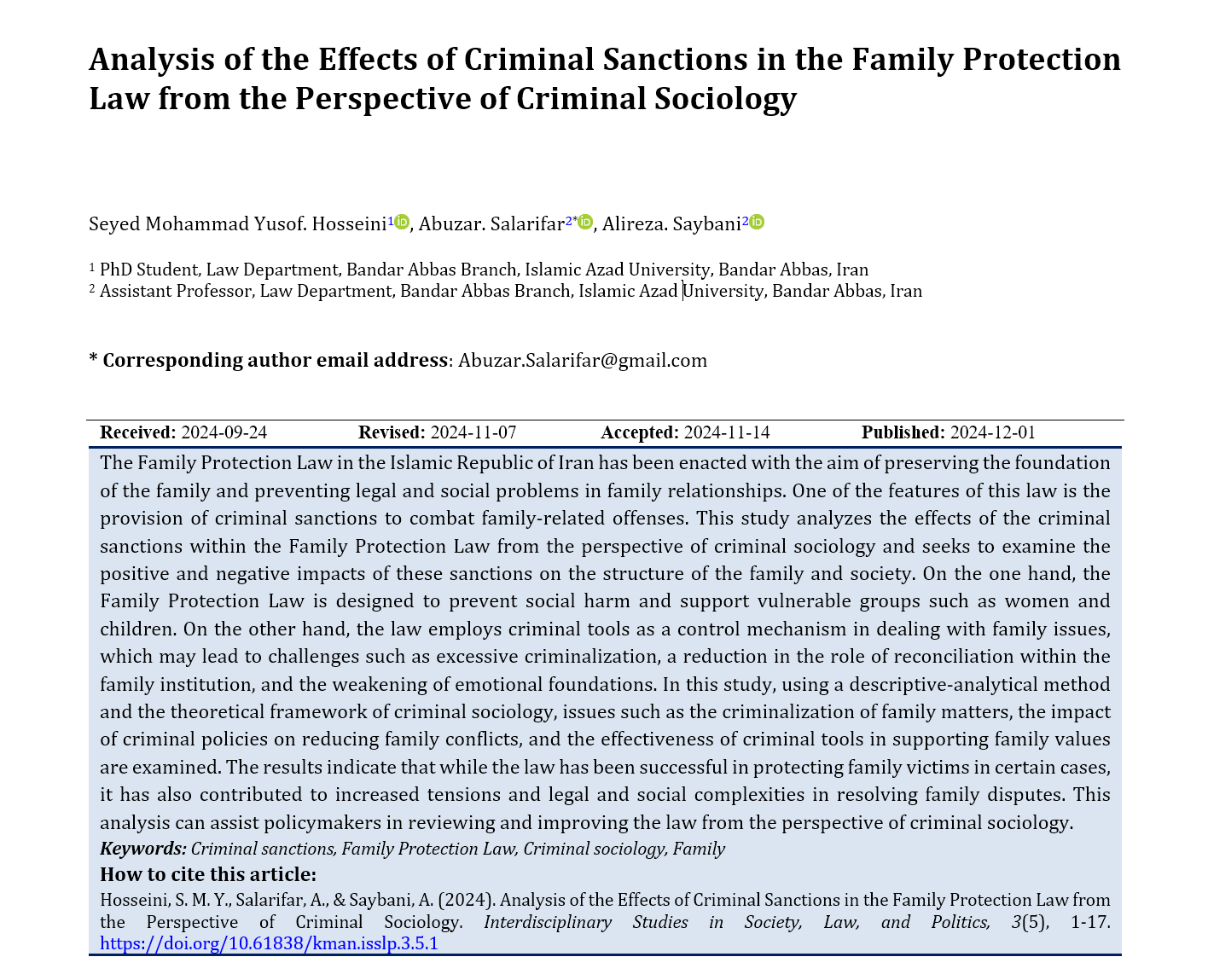Analysis of the Effects of Criminal Sanctions in the Family Protection Law from the Perspective of Criminal Sociology
Keywords:
Criminal sanctions, Family Protection Law, Criminal sociology, FamilyAbstract
The Family Protection Law in the Islamic Republic of Iran has been enacted with the aim of preserving the foundation of the family and preventing legal and social problems in family relationships. One of the features of this law is the provision of criminal sanctions to combat family-related offenses. This study analyzes the effects of the criminal sanctions within the Family Protection Law from the perspective of criminal sociology and seeks to examine the positive and negative impacts of these sanctions on the structure of the family and society. On the one hand, the Family Protection Law is designed to prevent social harm and support vulnerable groups such as women and children. On the other hand, the law employs criminal tools as a control mechanism in dealing with family issues, which may lead to challenges such as excessive criminalization, a reduction in the role of reconciliation within the family institution, and the weakening of emotional foundations. In this study, using a descriptive-analytical method and the theoretical framework of criminal sociology, issues such as the criminalization of family matters, the impact of criminal policies on reducing family conflicts, and the effectiveness of criminal tools in supporting family values are examined. The results indicate that while the law has been successful in protecting family victims in certain cases, it has also contributed to increased tensions and legal and social complexities in resolving family disputes. This analysis can assist policymakers in reviewing and improving the law from the perspective of criminal sociology.
Downloads






